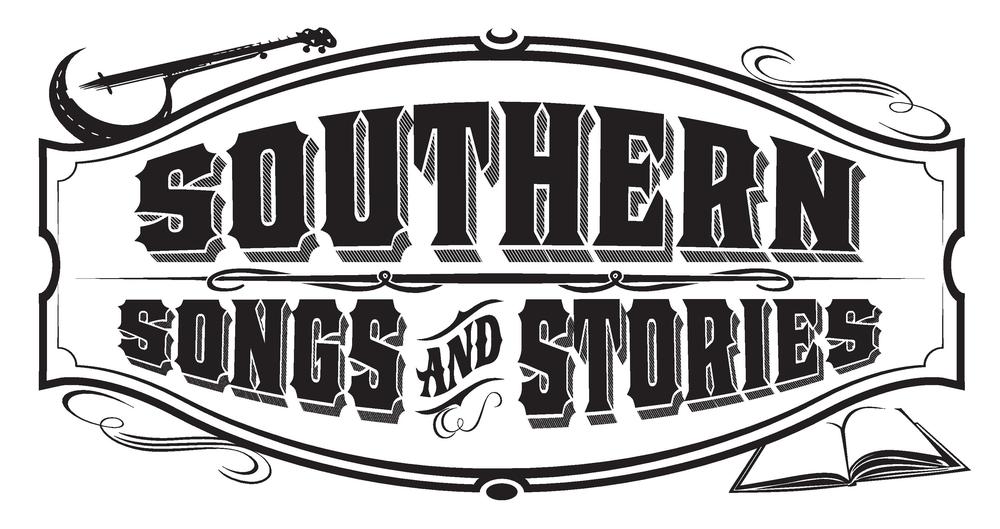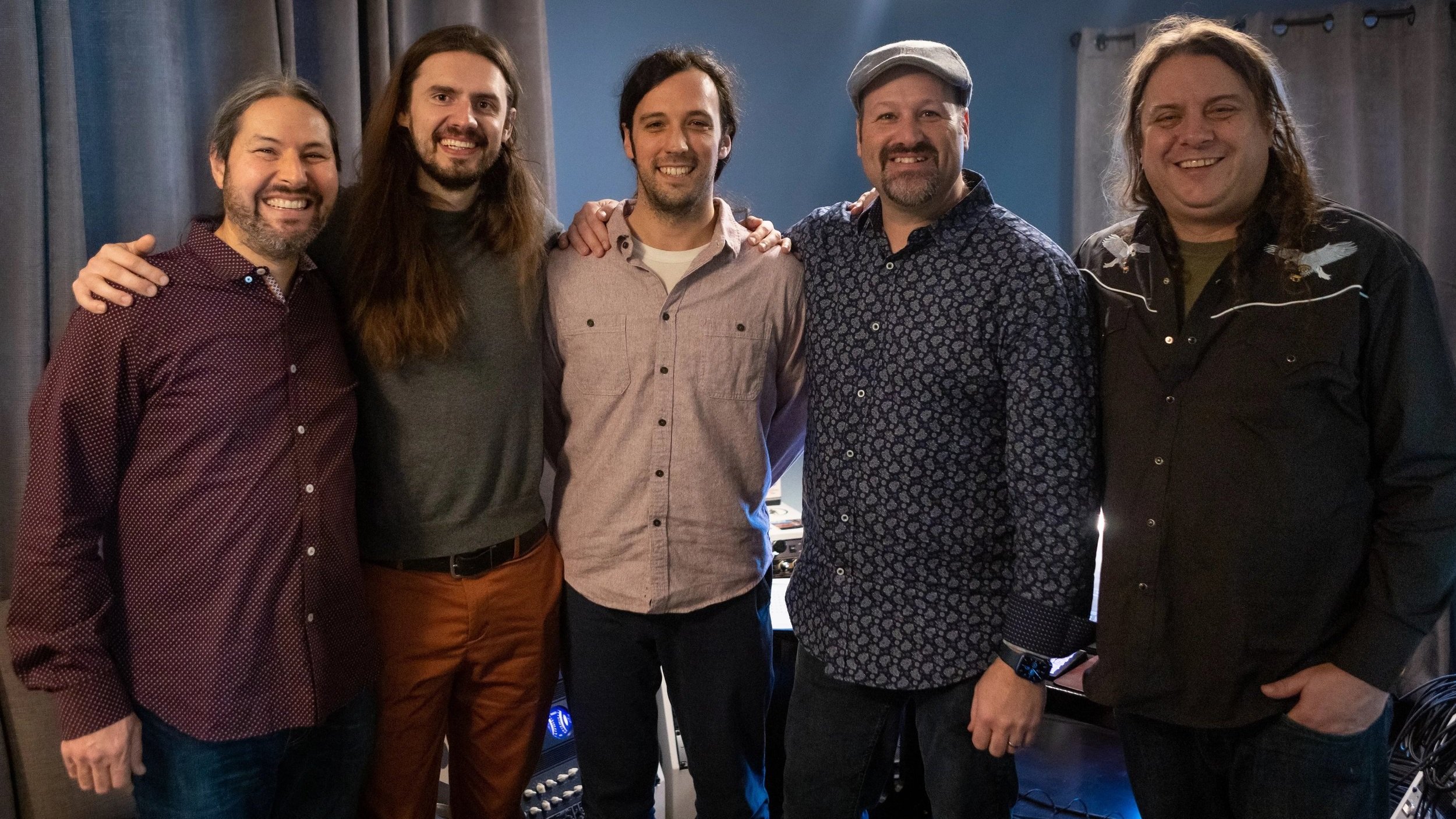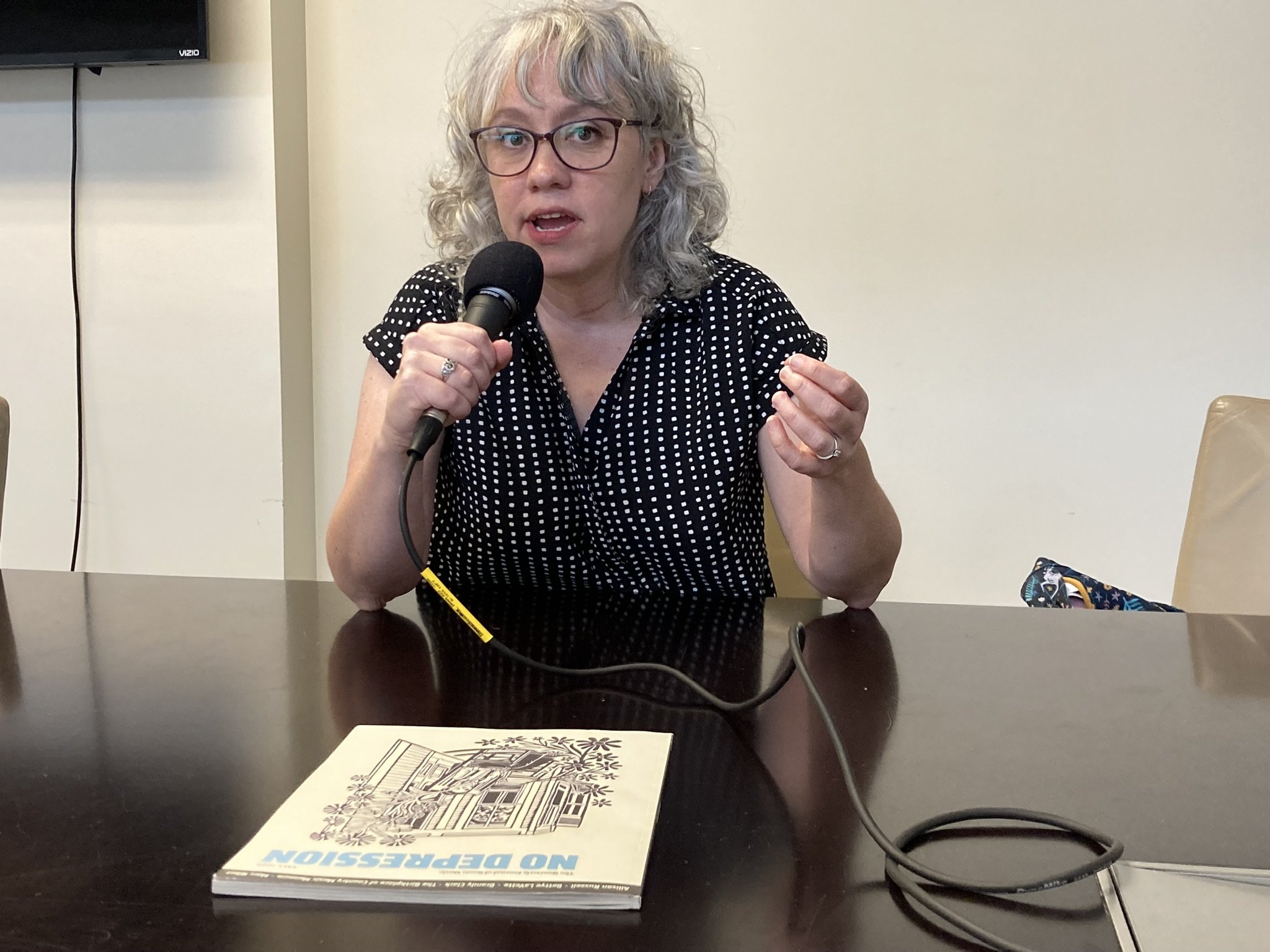The last two weeks have turned so much upside down in my world, and everything started with a tropical storm hitting the Appalachians, while I was at the IBMA Conference in Raleigh.
Even going into IBMA, I was almost on fumes, having crammed getting prepared for a big week away, arranging a schedule of interviews and earmarking events and panels, as well as producing the latest episode in this series, our last podcast, on Maya De Vitry and Joel Timmons. I hope you check it out if you haven't already.
Anyhow, it was a frenetic and bittersweet week to begin with -- owing to the fact that this was the last year for IBMA in North Carolina before moving west, to Chattanooga starting in 2025 -- but everything that was good about the conference was quickly shoved aside as the horror of Helene unfolded on the news. Losing contact with my family for a full day leading up to my return, I had the surreal experience of being safe and largely unaffected by the storm in the state capitol, watching footage of devastating floodwaters rise in cities like Asheville, while knowing that my family had no power and no communications in our home in the piedmont, and therefore could not see the extent of the damage two counties to their west.
I got home and endured one whole night and half of the next day without power, so count me very lucky. We had no damage to the house, just a mess with limbs down and debris blown all over the place.
As I say this, the aftermath of the storm is still unfolding. It destroyed so much that it is beyond comprehension -- as my WNCW colleague Scotty Robertson, who lives in Asheville, told me: it is like walking around in a fever dream to see the havoc wreaked practically everywhere, especially anywhere near water.
Many WNCW folks live in the mountains where communications were cut off for days, so it was an immediate challenge to fill in their shows with episodes from our archives. That process started with contacting everyone, which is more than two dozen hosts, to find out how they were immediately after the storm passed. Luckily, everyone was safe and most had little or no damage to their homes.
Even during the storm, but especially following it, WNCW kicked into a news and public information mode, acting as a conduit for information on how to help those in need, as well as how to get help in the wake of Helene. I interviewed a Charlotte public radio reporter in Linville first, then wound up being interviewed by USA Today for an online article, jumped on a press call with FEMA, and later on took an interview with WXPN in Philadelphia (thanks Dan Reed!). Everything became Helene. A torrent of emails giving information on supply distributions, ways to apply for aid, news on closures, you name it -- all of it coming from many directions. Calls, texts and social media, all day long: Helene. Essentially a mode of taking in the disaster from all fronts for purposes of reporting on it, largely engulfing my workday.
It hit me very soon, even before it was over, that this podcast would have to take a beat. All the interviews that I got at IBMA -- great conversations with author David Menconi, musician and label exec Ty Gilpin, and banjo innovator Tray Wellington -- would have to wait. Those were added to a pre existing line of interviews from the likes of Steve Earle, and all the interviews I got at the Earl Scruggs Music Festival, from Lindsay Lou, Twisted Pine and The Faux Paws. Yeah, sorry y’all. It was obvious that doing anything like the usual episode was not going to work in light of the tragedy in my own back yard.
Rob Daves (left) and Joe Kendrick (right) at Bonnaroo, June 2013
But don’t despair, you will get to hear all those artists’ episodes, Lord willing! In the meantime, get set for an episode focusing on the aftermath of Helene in western NC and Asheville specifically, as I interview artists and professionals like Jesse Iaquinto from Fireside Collective, Liz Whalen Tallent from the Orange Peel, Josh Blake of IAMAVL, Russell Keith of The Grey Eagle and others in the music community. It may become more than one episode -- that remains to be known, as I am still conducting interviews and may wind up with enough material that one episode is just not enough.
We will see, and wish me luck, because there is more than the storm that has knocked us on our heels around here. A week after Helene arrived, a dear friend of mine departed the world: Rob Daves. Rob was WNCW’s voice of the overnight music mix, the alternative show ARC Overnight, for the better part of 20 years. He was beloved by staff and listeners alike, and even though he had battled some health issues in recent years, it was still shocking to lose him. Whatever oxygen was left in the room following Helene was quickly sucked up by the void of Rob’s loss, and we miss him greatly.
With ARC Overnight, we are trying to pull that together with the help of Alex Nudd, who is a familiar voice to the wee hours, among other WNCW hosts including longtime volunteer Harry Strider. ARC totals 25 hours each week, spread over six nights, and that’s a lot of music to play. Not to mention a lot of work screening, reviewing, and generally taking care of the scores of singles, albums and events that we field weekly. Rob was also music director and programmer for ARC, so all the albums and singles in what we call the rotation for that show he selected and shepherded. That’s a big job on top of big shoes to fill, impossibly big, for all things overnight on WNCW currently. But we’re working through it.
Next week I start teaching a radio DJ and podcast production class at the community college that WNCW calls home, Isothermal, and that’s going to demand a lot of attention for the next 8 weeks. But that’s a good problem to have!
Let me leave you with one of Rob Daves’ favorite artists, who calls Asheville NC home, Angel Olsen. I hope Angel made it through Helene okay, and I think she must have, because she announced on October 9th that she is part of a new benefit compilation titled Cardinals At The Window - her song “Can’t Wait Until Tomorrow” (live from Echo Mountain) is part of that massive compilation containing a whopping 136 previously unreleased tracks to benefit flood relief efforts in Western North Carolina. All proceeds go to the aid organizations Beloved Asheville, Community Foundation of Western NC, and Rural Organizing and Resilience.
Cardinals At The Window is out now, on bandcamp. Go get you some!
And the song I am going to play is not that new song but one of Rob’s favorites from Angel’s last full album, 2022’s Big Time. I’m Joe Kendrick, saying so long for now with the title track to Angel Olsen’s Big Time to close out this Southern Songs and Stories update.
Songs heard in this episode:
Angel Olsen “Big Time” from Big Time
Thanks for joining us! We hope you can help spread awareness of what we are doing. It is as easy as telling a friend and following this podcast on your platform of choice, both of which are quick, easy and free! You can find us on Apple here, and Spotify here — hundreds more episodes await you.
From there it takes just a moment to give us a top rating, and where it is an option, a review! It makes a great difference because the more top reviews and ratings we get, the more visible we become to everyone on those platforms, which means that more people just like you discover and connect with artists like Angel Olsen, and great DJs like the late Rob Daves.
This series is a part of the lineup of both public radio WNCW and Osiris Media, with all of the Osiris shows available here. You can also hear new episodes on Bluegrass Planet Radio here. Thanks to everyone on staff at Albino Skunk for their help in making this episode possible. Thanks also to Jaclyn Anthony for producing the radio adaptations of this series on WNCW, where we worked with Joshua Meng, who wrote and performed our theme songs — you can link to his music here. This is Southern Songs and Stories: the music of the South and the artists who make it. - Joe Kendrick









